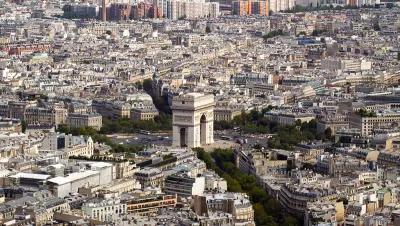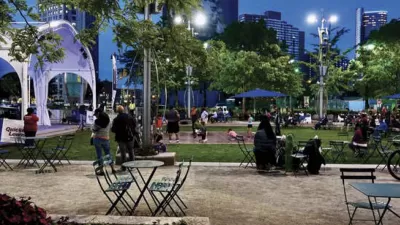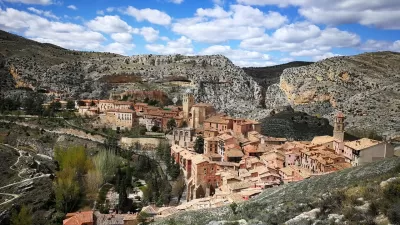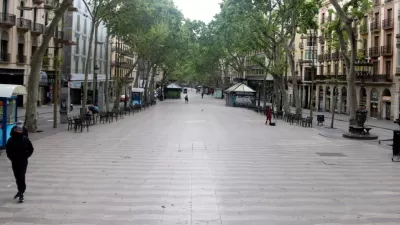Raising the bar on the 20-minute neighborhood model, cities around the world are embracing the appeal of the 15-minute city during the coronavirus pandemic.

Feargus O'Sullivan and Laura Bliss relate a picturesque rendering of Paris, describing the transformation in parts of the city from a car-reliant spiral of streets into a series of self-sustainable communities dedicated to the people rather than cars.
The Minimes barracks, the renovation of the Place de la Bastille, and the now-permanent "coronapiste" bike thoroughfare represent a shift toward "a potentially transformative vision for urban planners: the 15-minute city," as O'Sullivan and Bliss insist, describing an interconnected web of numerous walkable hubs within a city as "replicated, like fractals, across an entire urban expanse."
The authors' article presents the hiring of "proximity city" officials under Mayor Anne Hidalgo's leadership, most notably, Professor Carlos Moreno's rise to the position of "kind of deputy philosopher" of the 15-minute city and the appointment of Carine Rolland as Commissioner for the 15-minute city. O'Sullivan and Bliss show that Paris has doubled down on planning and implementation for a city in which residents have everything they need in close proximity. European centers from London to Barcelona to Milan have also embraced the proximity approach.
"But turning the 15-minute city into a truly global movement will require a big battle over a core urban tension: the primacy of the car," remind O'Sullivan and Bliss.
In the particularly car-reliant city of Detroit (appropriately deemed Motor City) Mayor Mike Duggan's 2016 plan to improve walkability and proximity to essential services under the 20-minute rubric has so far been a modest success. The walkability and bikeability of Portland have also been "celebrated in urbanist circles as a model of U.S. city planning," O'Sullivan and Bliss say.
"Following the unending traumas of 2020, there’s an appealing nostalgia to a renewed emphasis on neighborhoods, even if it addresses only some of the city’s modern challenges," write the pair.
FULL STORY: The 15-Minute City—No Cars Required—Is Urban Planning’s New Utopia

Trump Administration Could Effectively End Housing Voucher Program
Federal officials are eyeing major cuts to the Section 8 program that helps millions of low-income households pay rent.

Planetizen Federal Action Tracker
A weekly monitor of how Trump’s orders and actions are impacting planners and planning in America.

Ken Jennings Launches Transit Web Series
The Jeopardy champ wants you to ride public transit.

Why Bike Lanes Are Good: An Explainer for the US Transportation Secretary
Sean Duffy says there’s no evidence that bike lanes have benefits. Streetsblog — and federal agencies’ own data — beg to differ.

California Invests Additional $5M in Electric School Buses
The state wants to electrify all of its school bus fleets by 2035.

Austin Launches $2M Homelessness Prevention Fund
A new grant program from the city’s Homeless Strategy Office will fund rental assistance and supportive services.
Urban Design for Planners 1: Software Tools
This six-course series explores essential urban design concepts using open source software and equips planners with the tools they need to participate fully in the urban design process.
Planning for Universal Design
Learn the tools for implementing Universal Design in planning regulations.
Ada County Highway District
Clanton & Associates, Inc.
Jessamine County Fiscal Court
Institute for Housing and Urban Development Studies (IHS)
City of Grandview
Harvard GSD Executive Education
Toledo-Lucas County Plan Commissions
Salt Lake City
NYU Wagner Graduate School of Public Service





























